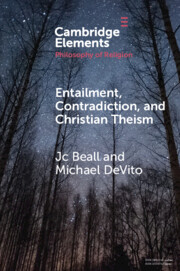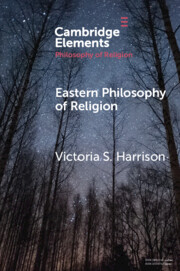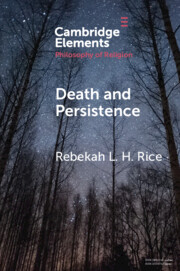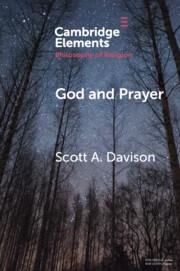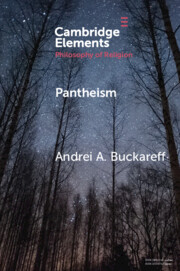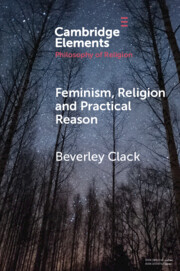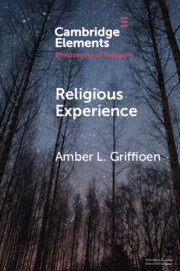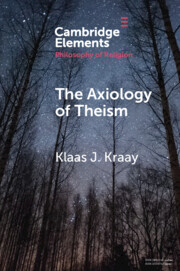Cambridge Elements in the Philosophy of Religion
This Cambridge Elements series provides concise and structured introductions to all the central topics in the philosophy of religion. The books in the series are written by distinguished senior scholars and bright junior scholars with relevant expertise. This series offers balanced, comprehensive coverage of multiple perspectives in the philosophy of religion.
Elements in this series
Series Editor
Yujin Nagasawa is Professor of Philosophy and Co-Director of the John Hick Centre for Philosophy of Religion at the University of Birmingham. He is currently President of the British Society for the Philosophy of Religion. He is the author of Miracles: A Very Short Introduction (OUP, 2017), Maximal God: A New Defence of Perfect Being Theism (OUP 2017), The Existence of God: A Philosophical Introduction (Routledge, 2011) and God and Phenomenal Consciousness: A Novel Approach to Knowledge Arguments (CUP, 2008). He is also editor/co-editor of Palgrave Handbook of the Afterlife (Palgrave Macmillan, 2017), Alternative Concepts of God: Essays on the Metaphysics of the Divine (OUP, 2015), Consciousness in the Physical World: Essays on Russellian Monism (OUP, 2015), Scientific Approaches to the Philosophy of Religion (Palgrave Macmillan, 2012), New Waves in Philosophy of Religion (Palgrave Macmillan, 2008) and There’s Something About Mary: Essays on Phenomenal Consciousness and Frank Jackson’s Knowledge Argument (MIT Press, 2004). He is a member of the Editorial Board of Religious Studies, the International Journal for Philosophy of Religion and Philosophy Compass. He won the Philosophical Quarterly Essay Prize in 2007, the Templeton Award for Theological Promise in 2008 and the Excellence in Philosophy of Religion Prize in 2011.
Contact the Editor
For more information about this series, please contact the Editor at [email protected].
Overview
The philosophy of religion addresses fundamental philosophical questions that are of interest to many: What is the origin of the universe? Can life be meaningful without God? Is religion compatible with science? Does the existence of evil in the world undermine belief in an all-powerful, all-loving God? Can miracles take place? How can we resolve religious disagreement? Is there life after death?
The philosophy of religion was neglected in the first half of the twentieth century but it has been reinvigorated over the last fifty years. Scholars in this area have developed new approaches and conceptual tools they have used to re-examine perennial problems with fresh eyes. The philosophy of religion is now widely acknowledged as a vibrant, flourishing area of philosophy.
Contributors to the series are cutting-edge researchers who approach central issues in the philosophy of religion by assimilating and applying recent developments not only in the philosophy of religion itself but also in natural and social sciences as well as foundational areas of philosophy such as metaphysics, epistemology and moral theory. Each provides a reliable resource for academic readers and develops new ideas and arguments from a unique viewpoint.
The range of topics that are covered in this series represents the broad diversity of the philosophy of religion. Some address metaphysical issues (Theism and Axiology, God and Abstract Objects), some address theological issues (Atonement, The Incarnation), some address practical issues (Religious Disagreement, Religious Diversity), some address scientific issues (Religion and Science, God and Time) and some address cultural and methodological issues (Eastern Philosophy of Religion, Feminist Philosophy of Religion).

